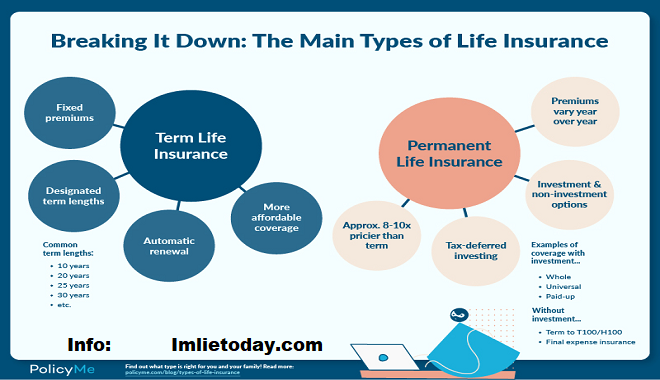Welcome to our comprehensive guide on the key differences between Canadian insurance and insurance in other countries. Insurance plays a crucial role in protecting individuals, businesses, and assets from unforeseen events and financial risks. While the general concept of insurance remains the same worldwide, each country has its own unique regulations, practices, and policies. In this article, we will delve into the distinctive aspects of Canadian insurance and highlight how it differs from insurance in other countries.
INDIVIDUAL Wellbeing, DENTAL Protection
Individual medical coverage is otherwise called individual, or family, health care coverage. It supplements your commonplace medical care, and could conceivably give expanded dental consideration.
Individual health care coverage is for single individuals, families and couples.
Note: on the off chance that you are covered under a representative advantage plan from work, you likely don’t have to buy individual health care coverage. Be that as it may, it is feasible to expand your gathering protection inclusion by purchasing individual medical coverage, incapacity protection, basic disease, life coverage, and so forth.

Bunch Health Care Coverage (Worker Advantages)
Bunch protection, frequently alluded to as representative advantages, is bought by organizations, which then offer their workers these advantages.
The kind of inclusion differs, contingent upon the protection transporter and plan type. Typically bunch protection has expanded medical advantages, some extra security, conceivably long haul handicap and broadened dental advantages.
Note: on the off chance that you are covered under a worker benefit plan you have the choice of enlarging your inclusion by purchasing individual health care coverage, inability protection, basic disease, life coverage, and so forth.
TRAVEL Clinical Protection
Travel clinical protection gives security to individuals going in the event of an unexpected mishap or disease.
We give go clinical protection to Canadians as well as non-Canadians voyaging abroad.
Guests TO CANADA Advantages
Guests to Canada benefits applies to the accompanying individuals:
Canadian ostracizes.
Landed migrants, unfamiliar understudies and laborers.
Any other individual who is simply visiting Canada.
The Canadian Insurance Landscape
Before we dive into the specifics, let’s take a closer look at the Canadian insurance landscape. Insurance in Canada is highly regulated and supervised by various federal and provincial authorities to ensure consumer protection and transparency. The insurance industry in Canada consists of a wide range of providers, including insurance companies, brokers, and agents, offering coverage for various aspects of life, including healthcare, property, auto, business, and more.
Canadian insurance policies are typically designed to provide comprehensive coverage, reflecting the diverse needs of the Canadian population. The insurance market in Canada is known for its stability, reliability, and high standards, which are reflected in the regulations imposed on insurance providers to guarantee fair practices and appropriate financial reserves.
Key Differences in Canadian Insurance
1. Universal Healthcare System
One of the significant differences between Canadian insurance and insurance in other countries is the presence of a universal healthcare system. In Canada, healthcare is primarily funded by the government, and most basic medical services are covered for Canadian residents. This means that the need for extensive health insurance coverage, as seen in many other countries, is relatively lower in Canada. However, private health insurance is still prevalent and can provide additional benefits, such as coverage for prescription drugs, dental services, and specialized treatments.
2. Auto Insurance
Auto insurance regulations in Canada differ from those in other countries, particularly in terms of mandatory coverage. In most Canadian provinces, drivers are required to have a minimum amount of liability insurance to cover damages and injuries resulting from an accident. However, the specifics of auto insurance coverage can vary between provinces, such as the inclusion of accident benefits, deductible options, and coverage for uninsured drivers. It is crucial for individuals to familiarize themselves with the auto insurance requirements in their specific province to ensure compliance and adequate protection.

3. Home Insurance
Home insurance policies in Canada may differ significantly from those in other countries, especially in terms of coverage and risks. Canadian home insurance typically includes coverage for the structure of the home, personal belongings, liability, and additional living expenses in case of temporary relocation. However, some natural disasters, such as earthquakes, may not be covered in standard policies and require separate coverage. It is essential for homeowners to understand the specific risks associated with their location and ensure they have appropriate coverage in place.
4. Business Insurance
Canadian business insurance is designed to protect businesses from various risks, including property damage, liability claims, and business interruptions. While the overall concepts of business insurance may be similar globally, Canadian policies may differ in terms of coverage limits, deductible options, and specific endorsements. Business owners in Canada should carefully assess the unique risks associated with their industry and customize their insurance policies accordingly.
5. Insurance Regulation
Insurance regulation in Canada is strictly enforced to protect the interests of consumers and maintain the stability of the insurance industry. Provincial insurance regulators, such as the Financial Services Commission of Ontario (FSCO) or the Insurance Bureau of Canada (IBC), play a crucial role in setting guidelines, licensing insurance providers, and resolving disputes. These regulators ensure that insurance companies operate ethically, maintain sufficient reserves, and comply with industry standards. Such stringent regulation sets Canadian insurance apart from some other countries where regulations may be more relaxed.
Canadian insurance differs from insurance in other countries due to unique factors such as the presence of a universal healthcare system, specific regulations for auto and home insurance, and strict insurance supervision. Understanding the distinctions in Canadian insurance is vital for individuals, businesses, and newcomers to the country to ensure appropriate coverage and compliance with regulations. Whether you are a Canadian resident or a newcomer, consulting with an experienced insurance provider or broker can help you navigate the complexities of Canadian insurance and make informed decisions regarding your coverage needs.
We hope this article has shed some light on the key differences between Canadian insurance and insurance in other countries. By understanding these nuances, you will be better equipped to navigate the Canadian insurance landscape and make choices that align with your specific needs and circumstances.

 Imlie Today
Imlie Today 

